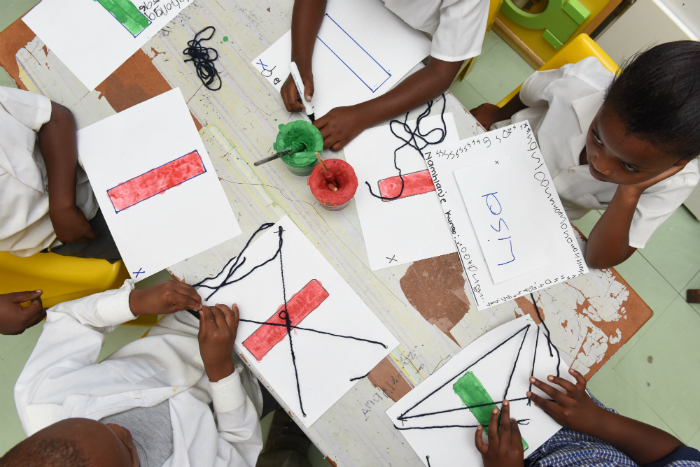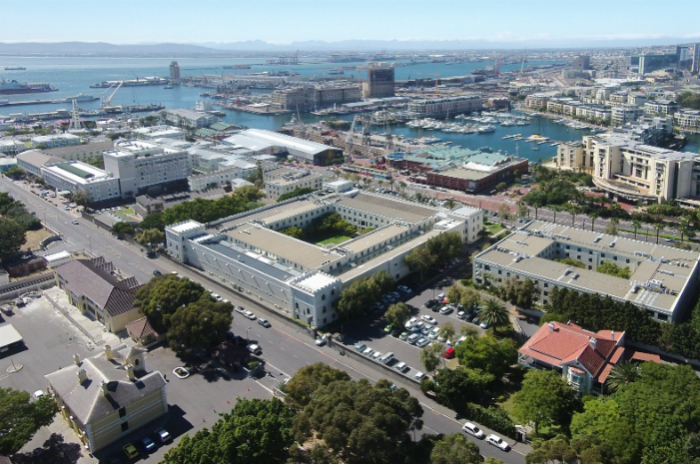UCT's Bertha Centre in global top five
01 March 2017 | Photos Michael Hammond.
A Bridgespan Group report has placed the Bertha Centre for Social Innovation and Entrepreneurship among the world's top five centres for social impact, a significant achievement for the Graduate School of Business's five-year-old centre. It is also the only centre in an emerging economy to be featured in the report.
It was benchmarked alongside four other business school heavyweights: the Center for the Advancement of Social Entrepreneurship at Duke University's Fuqua School of Business, the Social Enterprise Initiative at Harvard Business School, the Center for Social Innovation at Stanford's Graduate School of Business, and the Skoll Centre for Social Entrepreneurship at the University of Oxford's Saïd Business School.
New on the scene
Launched in late 2011, the Bertha Centre is a relative newcomer to the scene. By comparison, Harvard's Social Enterprise Initiative is 20 years old. It was established as a specialised unit at the UCT Graduate School of Business (GSB) in partnership with the Bertha Foundation, a family foundation that works with inspiring leaders who are catalysts for social and economic change and human rights.
The centre is also the first academic centre in Africa dedicated to advancing social innovation and entrepreneurship. With its strong focus on South Africa and Africa, it offers several programme areas: Advancing Social Innovation, Education Innovation, Inclusive Health Innovation, Innovative Finance and ScaleShift.
The Bridgespan report includes a broad landscape scan of more than 60 programmes within business schools and across universities worldwide.
Within the past decade there has been rapid growth in social impact initiatives at business schools, said Dr Francois Bonnici, the director of the Bertha Centre.
“The report points out that 10 years ago, merely establishing such a centre was a distinctive act of leadership. But now it's viewed as table stakes. Today, almost 50% of the top 50 business schools in the world host a social impact programme, initiative, or centre.”
He said that the centre had received significant support from the more established centres around the world and had been able to learn from them.
“Our goal is to achieve social justice and impact through teaching, research, events and actionable projects. We have infused social impact into the core of the business school curriculum, convinced that future leaders need to create economic, social and environmental value for an inclusive, sustainable country and continent. We have developed deep expertise in the areas of education, health and finance innovation.”
 UCT's Graduate School of Business on Cape Town's Foreshore.
UCT's Graduate School of Business on Cape Town's Foreshore.
Global shifts
The Bridgespan report analyses four promising future directions and opportunities identified by practitioners and experts in the social impact field. These include educating and preparing a broader range of students for social impact work across the social and private sectors. Bonnici said that these centres have a role to play in pushing universities and business schools to organise themselves more innovatively and to become more relevant and resilient.
“This debate is pertinent in the face of #FeesMustFall protests and discussions around the future shape and purpose of university education in South Africa. After all, social innovation requires that we challenge the rules and status quo of power and exclusion by building new products, processes, and models.
“These should deliver greater social value and challenge established belief systems, cultures, behaviours, flows of resources, and positions of power. If we are teaching disruptive approaches to our students, why shouldn't we apply them to how our own higher education institutions deliver that education?”
Shake things up
Associate Professor Mills Soko, the director of the GSB, agreed that African business schools had to prioritise relevance and impact − and should shake things up if necessary.
“Not only do we have an important role to play in training business leaders and entrepreneurs who are properly equipped to build successful and profitable businesses that also move society forward, but we can also use our position, research skills and convening power to influence policy and practices to tackle pressing social problems,” he said.
“This endorsement from the global community for the work of the Bertha Centre comes at an apt point in the school's transformation journey. It is a further boost to what we do and encouragement to continue with this important work.”
His view was supported by Laura Horwitz, chief operating officer of the Bertha Foundation: "We believe in the power of people organising to shift systems, to shift the world. That's why we invest in the Bertha Centre and others organising for progressive social change, geared toward overcoming extreme global inequality.
“We are proud that their achievements have been recognised in this new report.”
UCT fourth in emerging-economy universities. Read the article...
 This work is licensed under a Creative Commons Attribution-NoDerivatives 4.0 International License.
This work is licensed under a Creative Commons Attribution-NoDerivatives 4.0 International License.
Please view the republishing articles page for more information.










